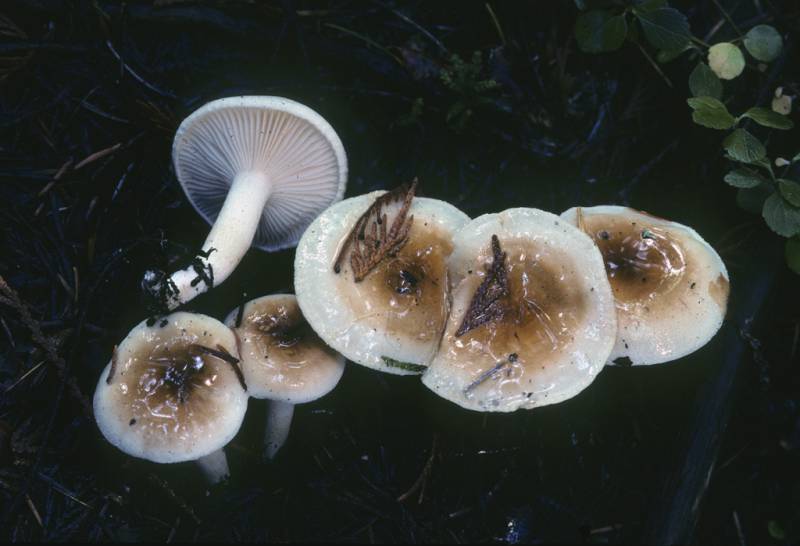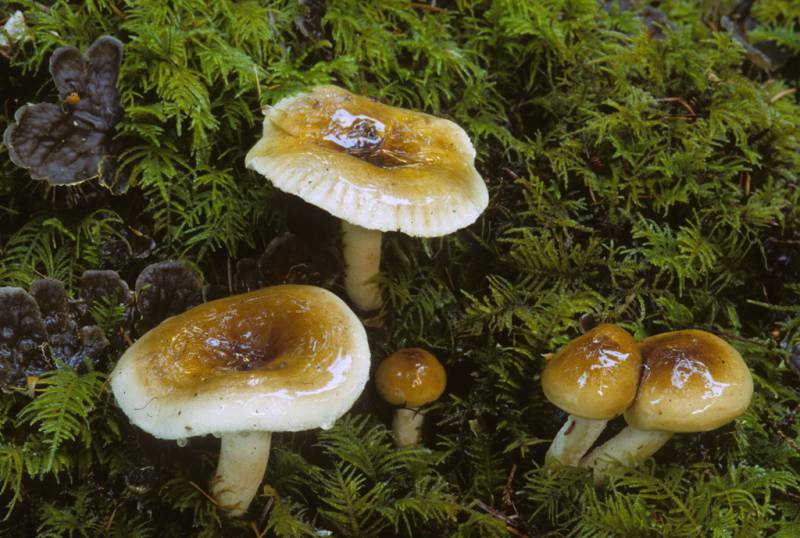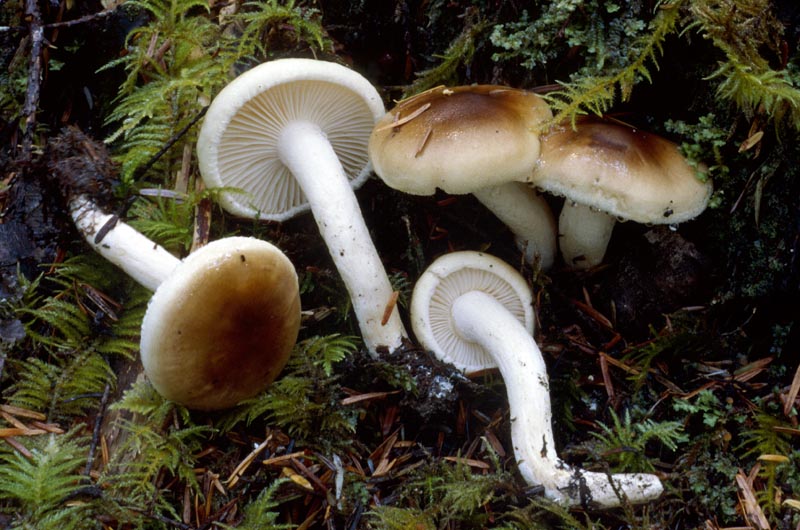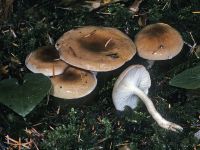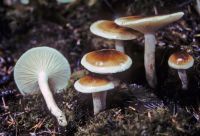Distribution: It is common throughout the PNW and extends into northern California (where it is less common).
Habitat: Near rotting conifer
Conservation Status: Not of concern
Edibility: Edible, low quality
Edible, low quality
Hygrophorus bakerensis is characterized by its medium to large, relatively slender-statured fruitbodies with a pleasant almond odor, and growth often on or near rotting conifer wood. The viscid cap is brown in the center and cream to white near its incurved edge, the gills and stipe are white, and the latter often appears somewhat powdery or dandruffy in the upper portion. H. variicolor Murrill differs only in having a stipe made slimy by a gelatinous veil. If the two taxa actually represent a single species, then Murrill’s name would have priority. H. bakerensis is another edible, but low quality, fungus.
PNW Herbaria: Specimen records of Hygrophorus bakerensis in the Consortium of Pacific Northwest Herbaria database
CalPhotos: Hygrophorus bakerensis photos

